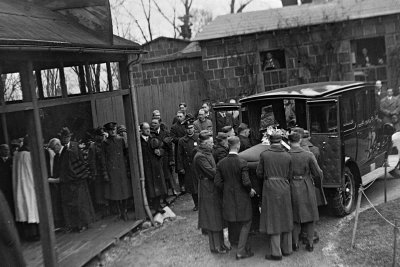Topic: Ralph Waldo Emerson
Quotes
Go often to the house of a friend, for weeds choke the unused path
The almanac Feb 04, 2009
What lies behind us and what lies before us are tiny matters compared to what lies within us
The almanac Feb 03, 2009
Do not go where the path may lead, go instead where there is no path and leave a trail
The almanac Jan 10, 2009
Go often to the house of a friend, for weeds choke the unused path
The almanac Feb 04, 2008
What lies behind us and what lies before us are tiny matters compared to what lies within us
The almanac Feb 03, 2008
Ralph Waldo Emerson (May 25, 1803 – April 27, 1882) was an American lecturer, essayist and poet, who led the Transcendentalist movement of the mid-19th century. He was seen as a champion of individualism and a prescient critic of the countervailing pressures of society, and he disseminated his thoughts through dozens of published essays and more than 1,500 public lectures across the United States.
Emerson gradually moved away from the religious and social beliefs of his contemporaries, formulating and expressing the philosophy of Transcendentalism in his 1836 essay, Nature. Following this ground-breaking work, he gave a speech entitled The American Scholar in 1837, which Oliver Wendell Holmes, Sr. considered to be America's "Intellectual Declaration of Independence". Considered one of the great lecturers of the time, Emerson had an enthusiasm and respect for his audience that enraptured crowds.
Emerson wrote most of his important essays as lectures first, then revised them for print. His first two collections of essays – Essays: First Series and Essays: Second Series, published respectively in 1841 and 1844 – represent the core of his thinking, and include such well-known essays as Self-Reliance, The Over-Soul, Circles, The Poet and Experience. Together with Nature, these essays made the decade from the mid-1830s to the mid-1840s Emerson's most fertile period.
It uses material from the Wikipedia article "Ralph Waldo Emerson."









